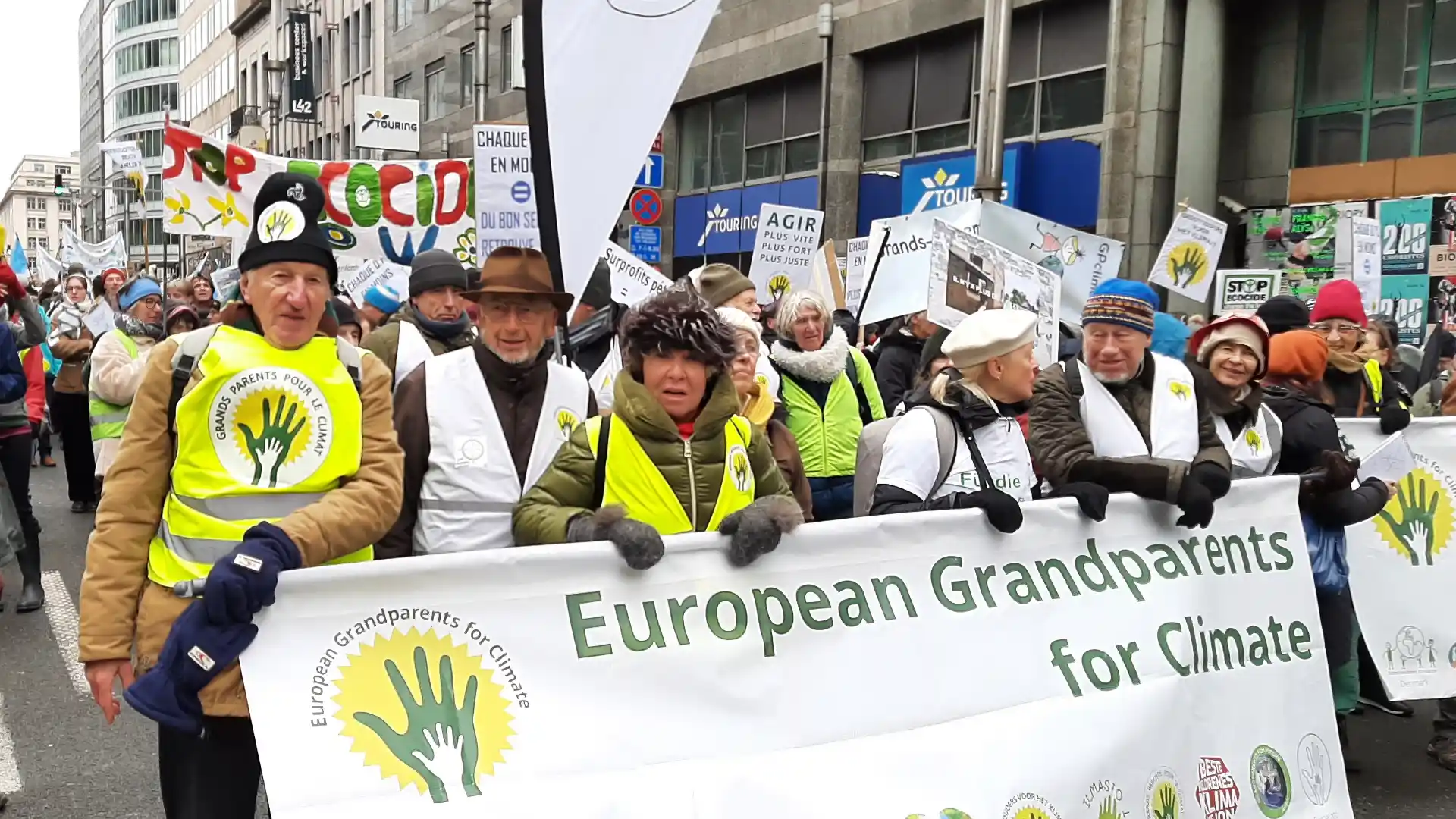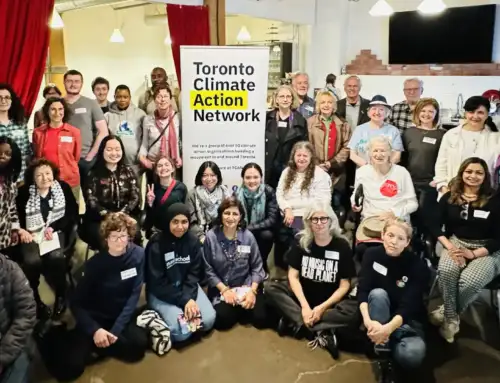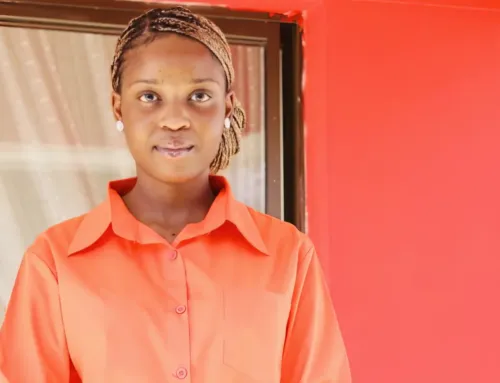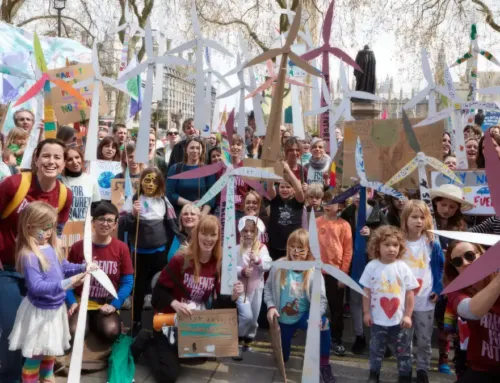STORIES
Ernst John Kaars Sijpesteijn:
Organizing grandparents and seniors across Europe to fight for climate policies that will protect future generations
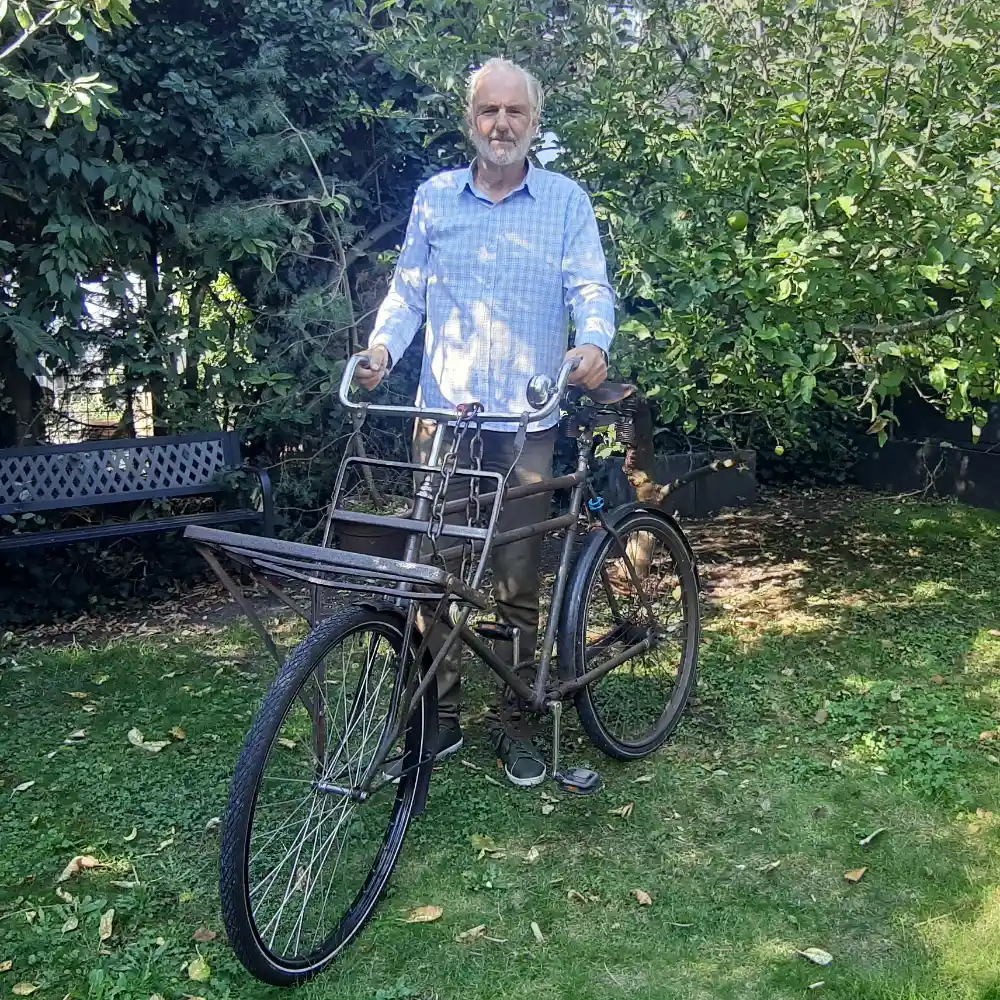
Ernst John is a musician and events coordinator living in Amsterdam. He has been organizing on sustainability issues and European cooperation since the mid-nineties. Over the past three years he has played a critical role in bringing national and local elders and grandparent groups across Europe together into what is now the official association European Grandparents for Climate. During his 2024 Parent Climate Fellowship, he will work to strengthen and expand this coalition and will focus on internal and external capacity building, as well as exchanging good practices and inspiring intergenerational actions.
My mother was Canadian, my father was Dutch, and I was born in Amsterdam. Before my first birthday we moved to Bergen, a small town near Holland’s Northern coast. The beautiful nature I grew up with there, especially the dunes, had a major influence on how I perceive the world.
I returned to Amsterdam 38 years ago to study European history and stayed. I organized events with student groups and, after finishing my studies, continued to organize around sustainable development, democracy, and European affairs. In the 1990s I became aware of the climate crisis and organized a European conference ahead of the 1997 Kyoto protocol negotiations, focusing on energy cooperation and sustainable energy policies.
I don’t have children. I work with European grandparents because I’m a concerned senior, passionate about widening the circle of people taking responsibility for shaping a better future. I started focusing on the intergenerational dimension by connecting with Grandparents for Climate here in the Netherlands. That led to coordinating a coalition to write an Open Letter in 2020 to the European Council, which is made up of heads of state and government and representatives of the European Commission. Our letter was signed by 12 European youth and elder organizations and called for ambitious emissions reduction by 2030 to achieve net zero in 2050.
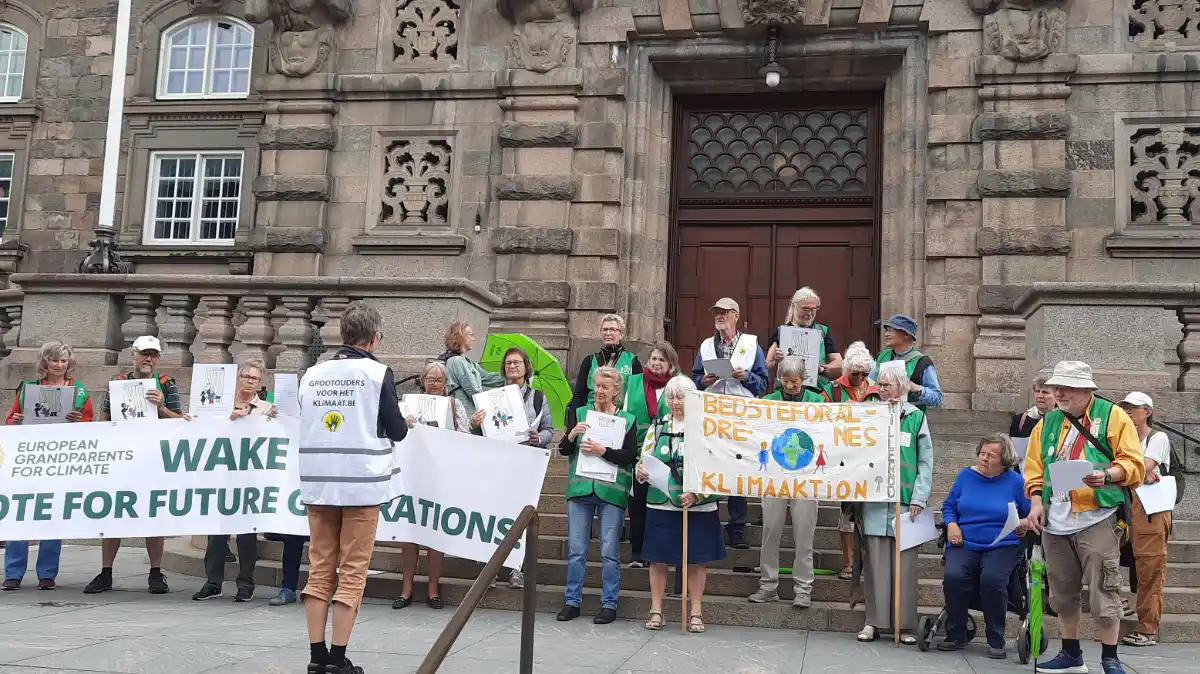
After that we expanded the network and eventually decided to become an official organization because we seniors want to be taken seriously and make a difference. Since 2021 I’ve been a convener, engaging people from 17 European organizations. In December 2023, we met in person for the first time and launched European Grandparents for Climate. It was a good, inspiring start. We shared information about our different groups’ various actions and met with many members of the European Parliament (MEPs). We now have 14 groups with full membership.
It’s important for elders to speak up, because what we irreversibly change now in the global ecosystem will have enormous impact. The impact’s clearly already here. As people able to vote, it’s our responsibility to vote for nature, which cannot vote, and for children, who cannot vote. This is something we can communicate about as seniors – the future of our children and their children.
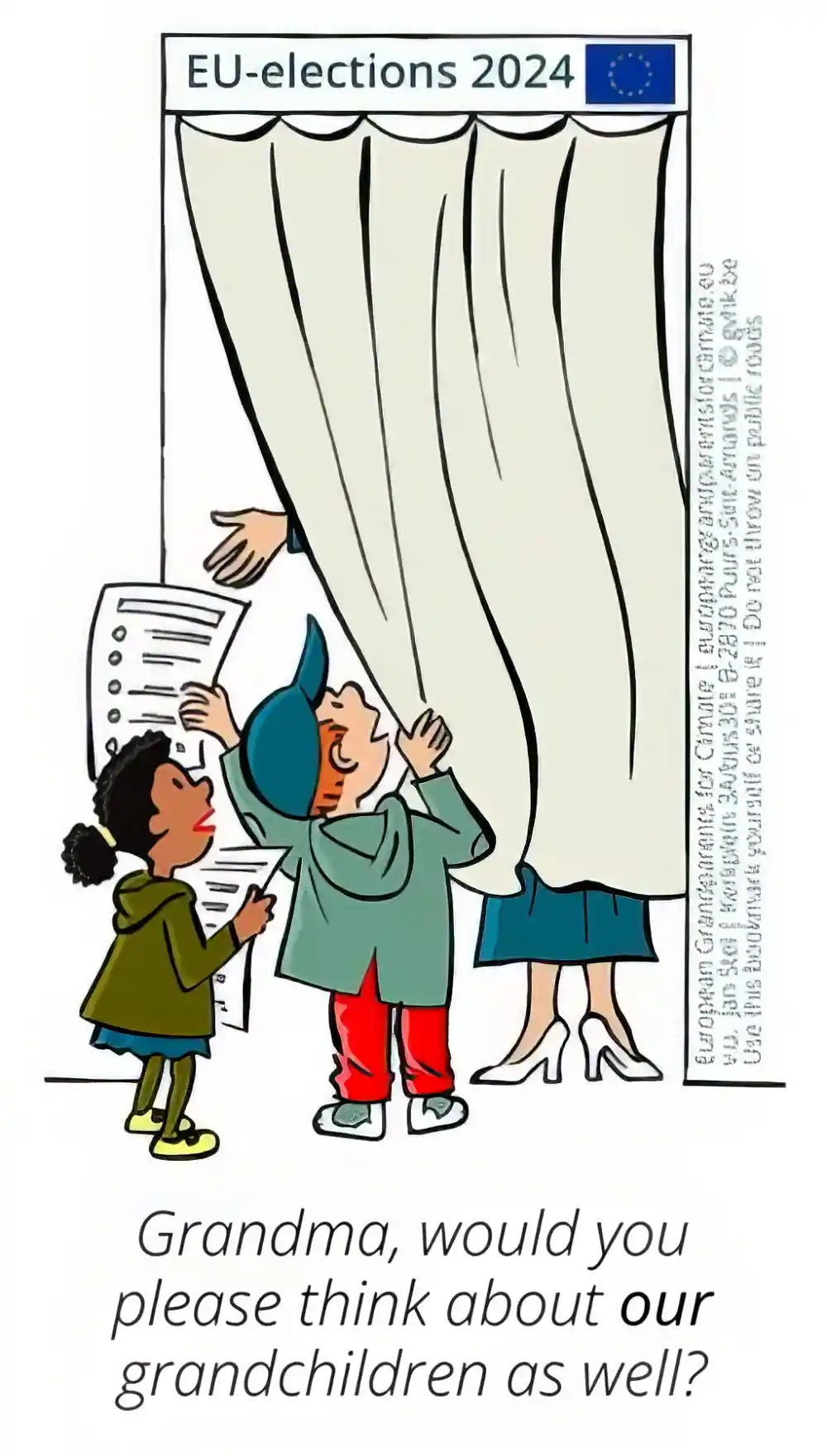
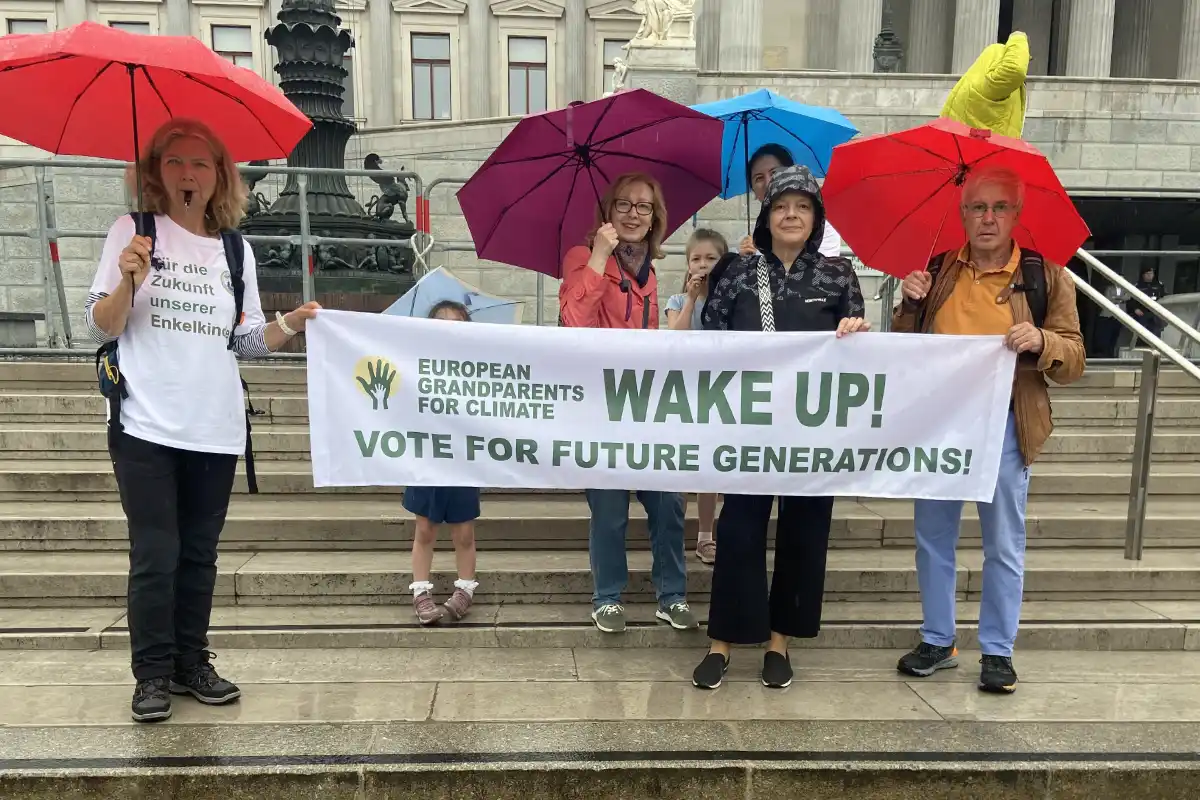
One purpose of our network is to form alliances, learn, and share best practices. Another is to ask, “How can we support each other’s policies at the national levels?” Together we’re stronger, so it’s logical to connect and see what we can do. Organizing across Europe is powerful because while the European Union (EU) is an intergovernmental organization, it’s also supranational, meaning it does a lot of legislating for Europe. Our goal is full implementation of a renewed Green Deal in this legislating session, so we cannot neglect this policy-making arena.
Our first shared action as European Grandparents for Climate was just before Europe’s 2024 elections. We blew whistles at the same time in front of the European Parliament and national parliaments all over Europe. Our message was, Wake up! Vote for future generations!
Sometimes demonstrations get very little public attention, and you ask, “Why are we doing this?” But they have effects. First, local events connect us in time and space, so we can see results together with the many people involved. In our case, we now have a beautiful video of our first protest that shows multiple actions across Europe, illustrating its geographical scope. Our newsletter’s subscriber list is also growing, and now in the UK there’s an initiative for an organization focused on children and the elder activists they want to become.
The EU elections were critical because MEPs can make a world of difference on climate policy. The EU can shape global policy, for example by regulating Europe’s auto industry or mandating how much energy certain appliances use, which affects whole industries. MEPs need to recognize their once-in-a-generation opportunity to impact the future of humanity. Our goal is to make sure they’re aware.
Before the election, there was a threat of a shift to the far-right, which would have doomed climate progress. I think we can be happy that it did not occur, and we’ll now see what’s possible. We’re engaging MEPs – many are new and young – and we’ll push them for the maximum green policymaking. We have working groups to help expand our contacts with MEPs, advance our climate policy goals, and support each other with positive ways to communicate the urgency of the climate crisis.
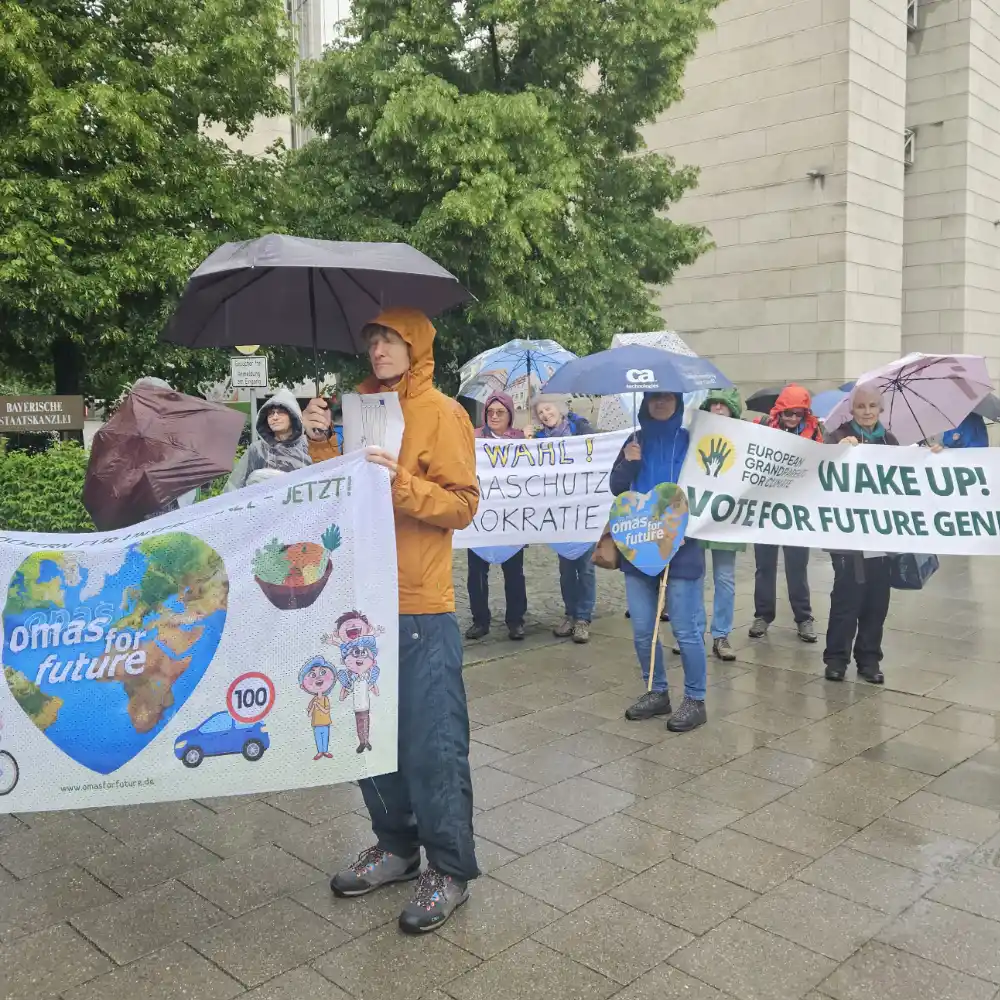
In spring 2024 we had an extraordinary verdict in a lawsuit waged by our Swiss member group KlimaSeniorinnen Schweiz (Senior Women for Climate Protection Switzerland). The European Court of Human Rights affirmed that it’s your human right to not be subjected to heat stress, which is bad for human health and, in this case, especially for elder women. It’s big because it establishes a legal precedent in Europe that climate safety is a human right. Many lawsuits are impacted by this ruling, so we’re discussing how to support them or perhaps even go to courts ourselves. This case is a good example of what elders can achieve.
Our group focuses on seniors, but our work is also intergenerational in scope and many local events feature children. Local events are important for sharing perspectives between generations. It can inspire children to see elders both loving younger generations and having political impact. And it’s compelling when children raise awareness at public events about what’s at stake for them in this crisis. I’d like to see our network of seniors in a vibrant coalition with parent and youth organizations from around the world.
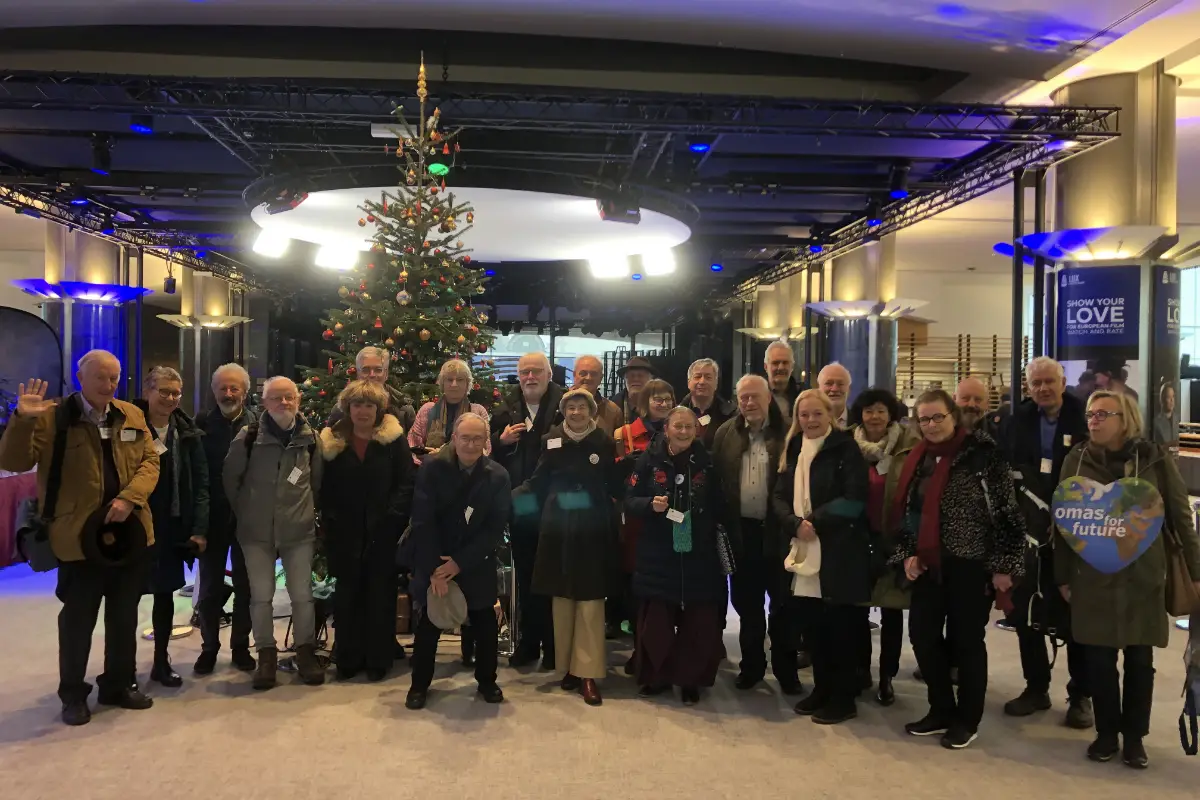
Of course, there are setbacks in this work and perhaps even despair. I choose to focus on positive opportunities. You have to be optimistic and realistic and see the opportunities for solutions. I focus on European policy, but I also enjoy my life. I try to experience all kinds of nature, and I play percussion, mostly Latin, with three big bands that keep me busy. And I ride a special, 100-year-old Amsterdam bike, a bakery bike with a frame for the bakery’s nameplate and a rack for the loaves of bread that were transported through the city. It’s a very beautiful old bike. Rusty, but this bike is my Harley Davidson.
I’m happy that so many local and national activities are happening within our member organizations. We elders have the potential for enormous positive impact. I hope to be alive and see positive results in 2050 – or perhaps earlier, because we’re now discussing whether the EU could even be net zero by 2040. That would be quite an undertaking, but we’re just getting started.
